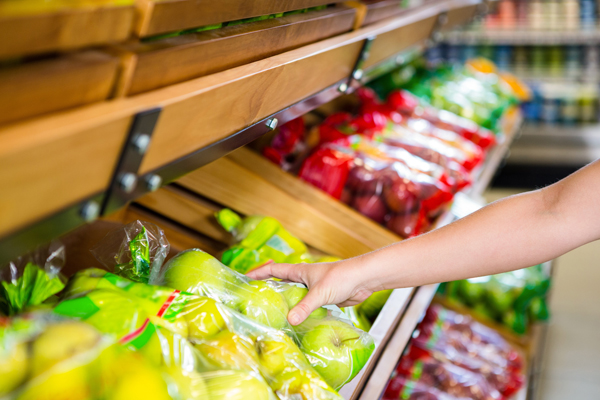- La Feria Community Holds Succesful Business Mixer Event
- Little Nashville to Take Place in Downtown Mercedes
- Lions Basketball Captures District Gold
- La Feria ISD Students Compete in Regional Chess Tournament
- Lions End First Half of 32-4A on a High Note
- La Feria ISD Held Another Successful Parent Conference
- Strong Appearance for Lions at Hidalgo Power Meet
- LFECHS Students Get to Meet Local Actress
- Students Participate in Marine Biology Camp
- Two LFECHS Students Qualify for All-State Band
Is Your Supermarket Reducing Plastic Pollution?
- Updated: July 19, 2019
(StatePoint) Plastic pollution is a crisis for communities, oceans and waterways, according to environmental experts, who point out that supermarkets — as major contributors to the growing problem — are in an important position to acknowledge and address the issue.
A recent report from Greenpeace, “Packaging Away the Planet,” ranked 20 major U.S. grocery retailers on their efforts to eliminate single-use plastics, evaluating them on their policies, plastic reduction efforts, innovation and initiatives and transparency. The report found that, across the board, U.S. supermarkets are not adequately addressing the plastic pollution crisis.
“While some retailers have started to take small steps toward reducing their plastic footprints, none are acting with the urgency needed to match the scale of the problem and their contribution to it, despite growing consumer demand for plastic-free solutions,” says Greenpeace plastics campaigner, David Pinsky. “Not only do these large companies have the resources to reimagine their stores with refill and reuse systems, they can use their buying power to pressure consumer goods companies to act as well. The question is whether retailers will take responsibility and act.”
According to experts, eliminating plastic straws or making small changes to produce bags is not enough, and major retailers wishing to adequately address the problem will need to immediately create and implement ambitious, public-facing plans to shift away from single-use plastics and toward refill and reuse systems.
Notable retailers making positive changes, according to the report, include ALDI, which ranked highest due to its plastic reduction target, comprehensive reduction plan, transparency and commitment to implement refill and reuse systems; Kroger, the only retailer of its size to ban single-use plastic checkout bags; and Albertsons Companies, which has made a commitment to reduce its plastic footprint. However, even these top-ranked retailers have a long way to go toward eliminating single-use plastics.
Hoping this year’s report will serve as a baseline to measure future reforms, Greenpeace plans to follow up with retailers to assess progress on plastic reduction initiatives, and report those efforts publicly. Consumers can also get involved by asking their grocery store managers to phase out throwaway plastics. To learn more, visit greenpeace.org/usa/shopping-for-plastic-2019/.
While there’s a long way to go to address the global plastic pollution crisis, supermarkets, which have relationships with both consumers and consumer goods companies, are an important industry to start with, say experts. Working together, the reduction of plastic use will mean direct relief for communities, oceans and waterways worldwide.



